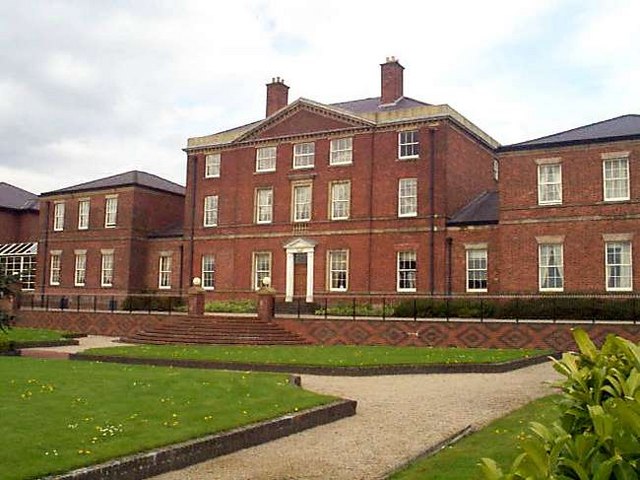|
Matthew Turner (physician)
Matthew Turner (died 1788), a Liverpool physician, is considered (for example by Berman, 1990) to be the author or co-author of the 1782 pamphlet, ''Answer to Dr. Priestley's Letters to a Philosophical Unbeliever'', the first published work of avowed atheism in Britain.Berman, David (1990). ''A History of Atheism in Britain: from Hobbes to Russell.'' London: Routledge. (first published 1988) Turner was also a pioneer in the use of ether for medical purposes, and wrote a pamphlet on the subject. In a footnote, Turner was the man who introduced Josiah Wedgwood to Thomas Bentley in Liverpool, a friendship which led to the formation of the company that produced the famous pottery. Turner was a friend of Peter Perez Burdett and his scientific knowledge was referred to Joseph Wright of Derby when he constructed his painting of ''The Alchemist Discovering Phosphorus'' in 1771 which is now in Derby Museum and Art Gallery Derby Museum and Art Gallery is a museum and art gallery in ... [...More Info...] [...Related Items...] OR: [Wikipedia] [Google] [Baidu] |
Liverpool
Liverpool is a City status in the United Kingdom, city and metropolitan borough in Merseyside, England. With a population of in 2019, it is the List of English districts by population, 10th largest English district by population and its ESPON metropolitan areas in the United Kingdom, metropolitan area is the fifth largest in the United Kingdom, with a population of 2.24 million. On the eastern side of the Mersey Estuary, Liverpool historically lay within the ancient Hundred (county division), hundred of West Derby (hundred), West Derby in the county of Lancashire. It became a Borough status in the United Kingdom, borough in 1207, a City status in the United Kingdom, city in 1880, and a county borough independent of the newly-created Lancashire County Council in 1889. Its Port of Liverpool, growth as a major port was paralleled by the expansion of the city throughout the Industrial Revolution. Along with general cargo, freight, and raw materials such as coal and cotton ... [...More Info...] [...Related Items...] OR: [Wikipedia] [Google] [Baidu] |
Atheism
Atheism, in the broadest sense, is an absence of belief in the existence of deities. Less broadly, atheism is a rejection of the belief that any deities exist. In an even narrower sense, atheism is specifically the position that there no deities. Atheism is contrasted with theism, which in its most general form is the belief that at least one deity exists. The first individuals to identify themselves as atheists lived in the 18th century during the Age of Enlightenment. The French Revolution, noted for its "unprecedented atheism", witnessed the first significant political movement in history to advocate for the supremacy of human reason.Extract of page 22 In 1967, Albania declared itself the first official atheist ... [...More Info...] [...Related Items...] OR: [Wikipedia] [Google] [Baidu] |
Diethyl Ether
Diethyl ether, or simply ether, is an organic compound in the ether class with the formula , sometimes abbreviated as (see Pseudoelement symbols). It is a colourless, highly volatile, sweet-smelling ("ethereal odour"), extremely flammable liquid. It is commonly used as a solvent in laboratories and as a starting fluid for some engines. It was formerly used as a general anesthetic, until non-flammable drugs were developed, such as halothane. It has been used as a recreational drug to cause intoxication. Production Most diethyl ether is produced as a byproduct of the vapor-phase hydration of ethylene to make ethanol. This process uses solid-supported phosphoric acid catalysts and can be adjusted to make more ether if the need arises. Vapor-phase dehydration of ethanol over some alumina catalysts can give diethyl ether yields of up to 95%. Diethyl ether can be prepared both in laboratories and on an industrial scale by the acid ether synthesis. Ethanol is mixed with a str ... [...More Info...] [...Related Items...] OR: [Wikipedia] [Google] [Baidu] |
Josiah Wedgwood
Josiah Wedgwood (12 July 1730 – 3 January 1795) was an English potter, entrepreneur and abolitionist. Founding the Wedgwood company in 1759, he developed improved pottery bodies by systematic experimentation, and was the leader in the industrialisation of the manufacture of European pottery. The renewed classical enthusiasms of the late 1760s and early 1770s were of major importance to his sales promotion. His expensive goods were in much demand from the upper classes, while he used emulation effects to market cheaper sets to the rest of society. Every new invention that Wedgwood produced – green glaze, creamware, black basalt, and jasperware – was quickly copied. Having once achieved efficiency in production, he obtained efficiencies in sales and distribution. His showrooms in London gave the public the chance to see his complete range of tableware. Wedgwood's company never made porcelain during his lifetime, but specialised in fine earthenwares and stonewares that h ... [...More Info...] [...Related Items...] OR: [Wikipedia] [Google] [Baidu] |
Thomas Bentley (manufacturer)
Thomas Bentley (1731–1780) was an English manufacturer of pottery, known for his partnership with Josiah Wedgwood. Life He was born at Scropton, Derbyshire, on 1 January 1731. His father, Thomas Bentley, was a country gentleman of some property. After receiving his education at the neighbouring presbyterian academy at Findern, young Bentley, being then about sixteen years of age, was placed in a warehouse at Manchester to learn the processes of the woollen and cotton trades. On the expiration of his apprenticeship he travelled for some time upon the continent, and after his return he married, in 1754, Miss Hannah Oates of Sheffield. He then settled in Liverpool, where he set up in business as a Manchester warehouseman, and afterwards took James Boardman into partnership. In 1757 he assisted in founding Warrington Academy, and in 1762 in building the Octagon Chapel in Temple Court, Liverpool, for the use of a body of Dissenters, of which he was a prominent member; they preferr ... [...More Info...] [...Related Items...] OR: [Wikipedia] [Google] [Baidu] |
|

